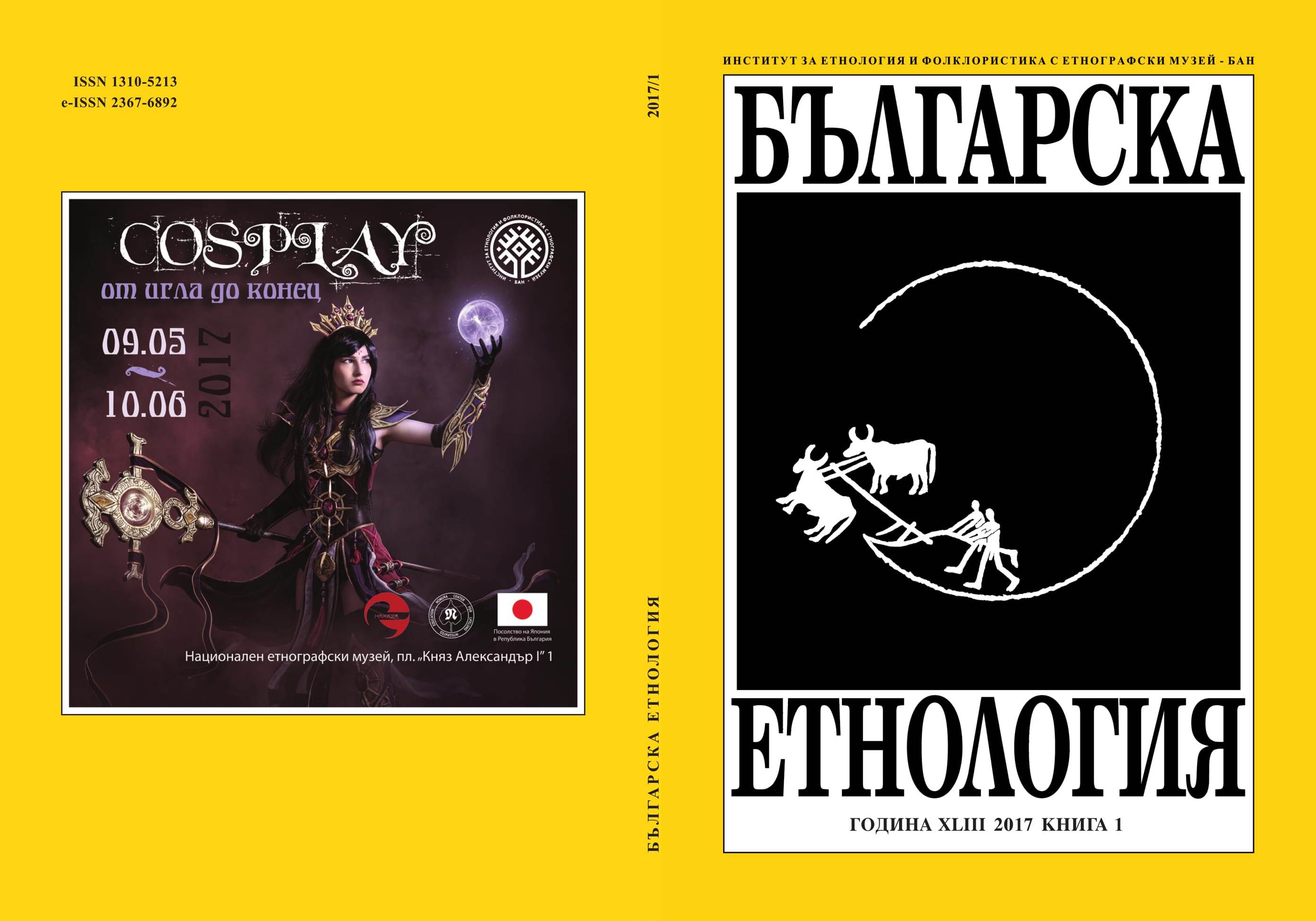
We kindly inform you that, as long as the subject affiliation of our 300.000+ articles is in progress, you might get unsufficient or no results on your third level or second level search. In this case, please broaden your search criteria.

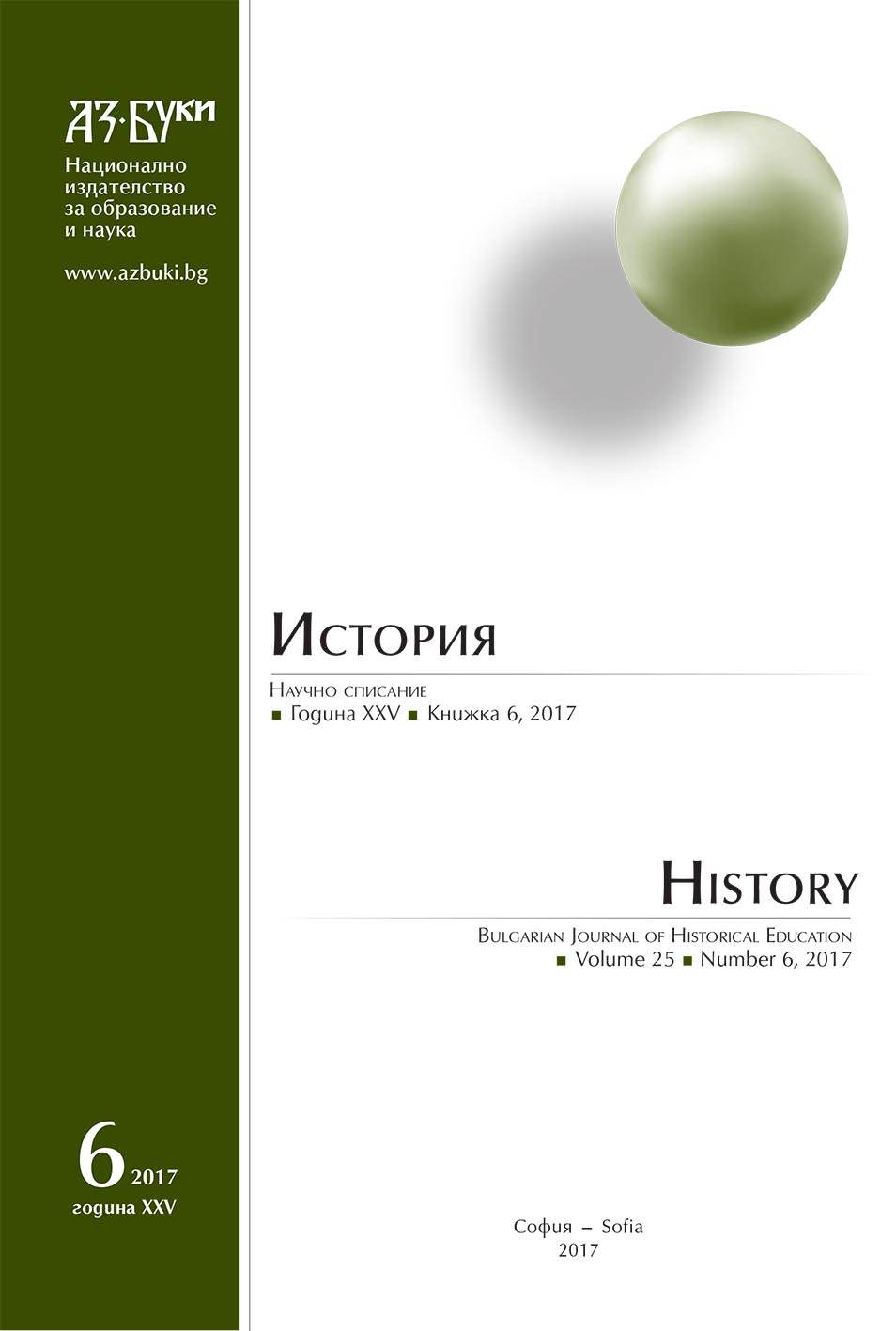
In this paper I briefly investigate the impact of three types of state agricultural policies on rural households in Valchedrum region, North West Bulgaria. I argue that the state remains a key factor, capable to transform the local economies, identities, and everyday life in a few years. I argue that unlike the situation in socialist Bulgaria, when the state lacked resources to implement its policies and had to rely heavily on coercion, the local people have rather limited options for agency now against powerful and efficient EU agricultural policies.
More...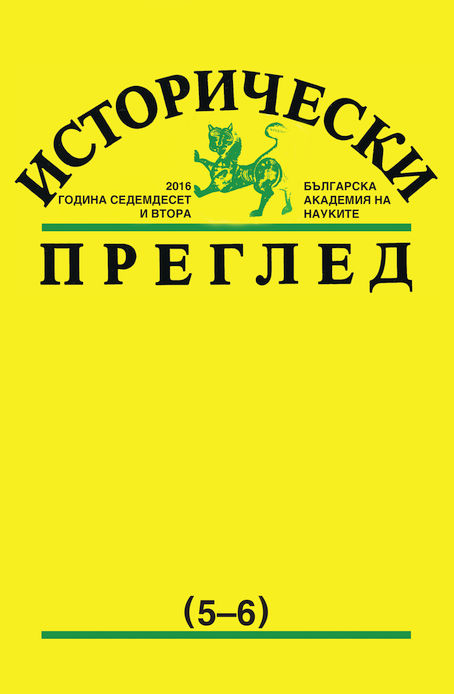
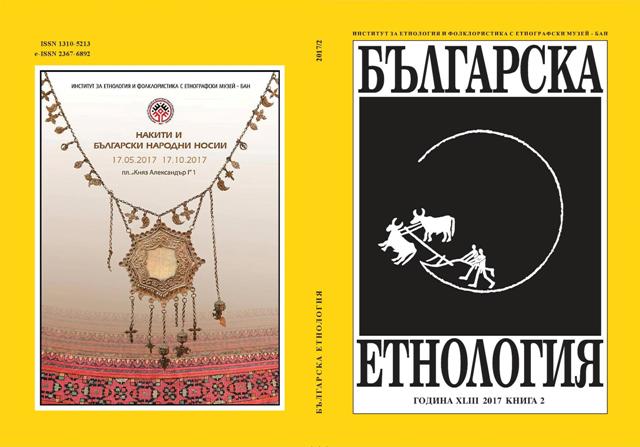
The migrations of the Turks from Bulgaria to Turkey in the 20th century are subject of broad academic and pubic discussions; the greatest attention is paid to the last wave of migration of 1989. The article directs the attention further back in the history, to the period from 1950 to 1951 when the Bulgarian and Turkish authorities organized for the first time a mass deportation of over 150 000 Turks. The study discusses the macro and micro framework of that migration flow in the light of the scientificanalytical approach of histoire croisée/entangled history. By means of it, the author analyses the “entangled” policies presented on the basis of Bulgarian, Turkish and other historical sources and compared to ethnographic fieldwork materials collected among the Bulgarian migrants in the city of Izmir. The study works out new issues and issues insufficiently examined of the written and oral history of the Turkish migrants related to the ideas of homeland, the influence of social and kin networks and the reconstruction of identity in the processes of migration, adaptation and integration.
More...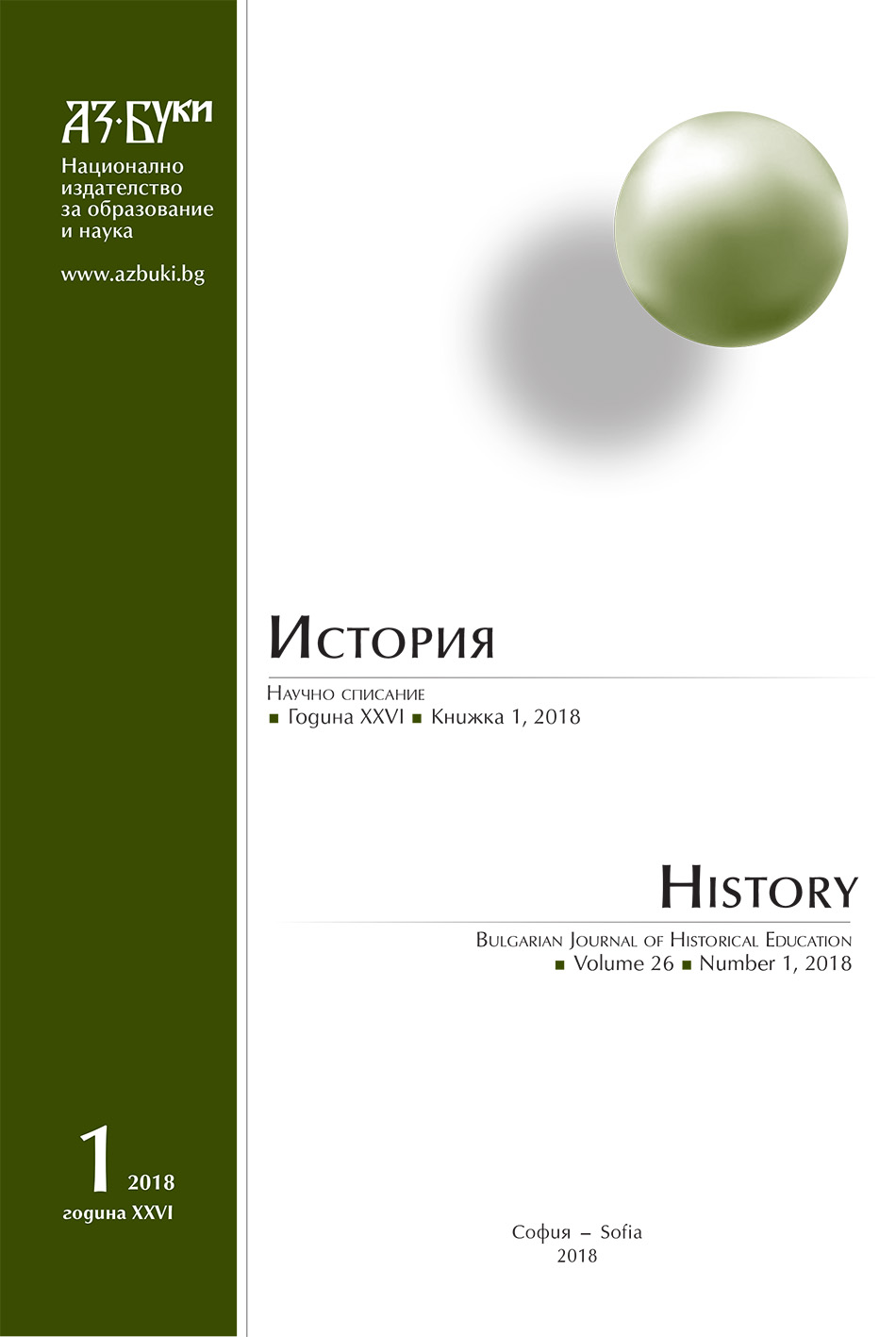
The article seeks to ascertain whether and to what extent the state policy of “care” and “protection” of the family, woman-mother, children and youth in the period of socialism in Bulgaria is the result of the paternalism and populism typical of the Bulgarian socialist model.
More...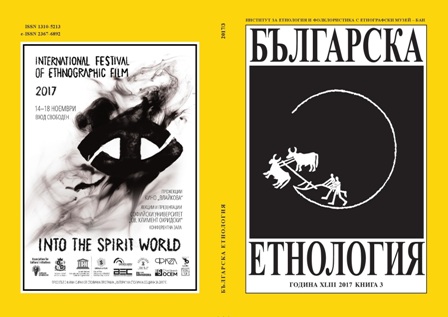
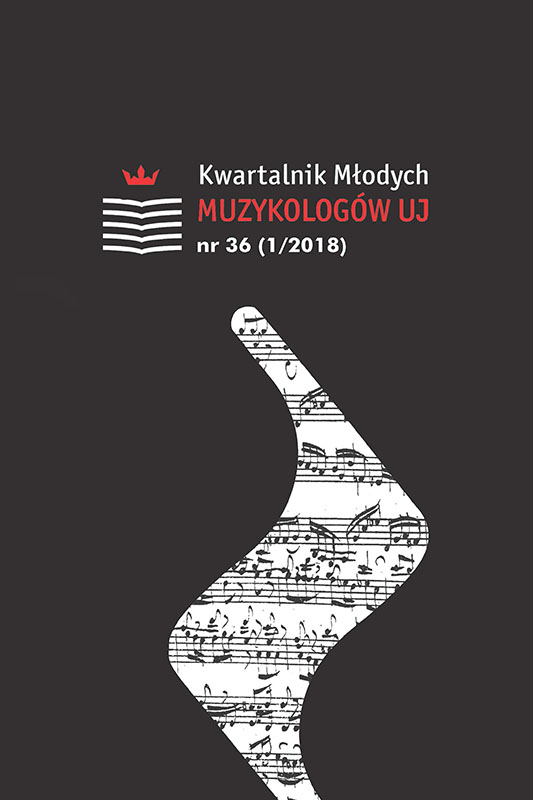
The main aim of this paper is to examine the discourse on Frédéric Chopin that took place in Poland in 1949, when the 100th anniversary of his birth coincided with the culmination of the socialist realist propaganda in the field of Polish culture. The discourse, initiated and moderated under effective surveillance of the Polish People’s Republic’s government, was filled with communist ideology. The authorities aimed at creating a sense of com-munion in the Polish nation, therefore they undertook numerous actions in the area of cultivating memory of Chopin and reception of his works. The composer was used as a banner under which culture of socialist realism was to be consolidated. Chopin was presented by the narrators in the socialist realist context in various dimen-sions. “Deep humanism”, “truth”, “optimism”, “sincerity” and “democratic features” of Chopin’s music were the crucial notions used by them. Chopin was depicted, among others, as a revolutionist and a prophet of tri-umph of communism. The oeuvre of Chopin was said to bring together “fraternal countries and nations”, Polish People’s Republic and Soviet Union, while being simultaneously a crucial element of class conflict. The authori-ties had a tendency to overemphasize folk roots of his compositions, thus among musical genres composed by Chopin the importance of Mazurka was exaggerated. Other genres without such strong folk connotations, as sonatas, ballades and scherzos, were marginalized in the discourse.
More...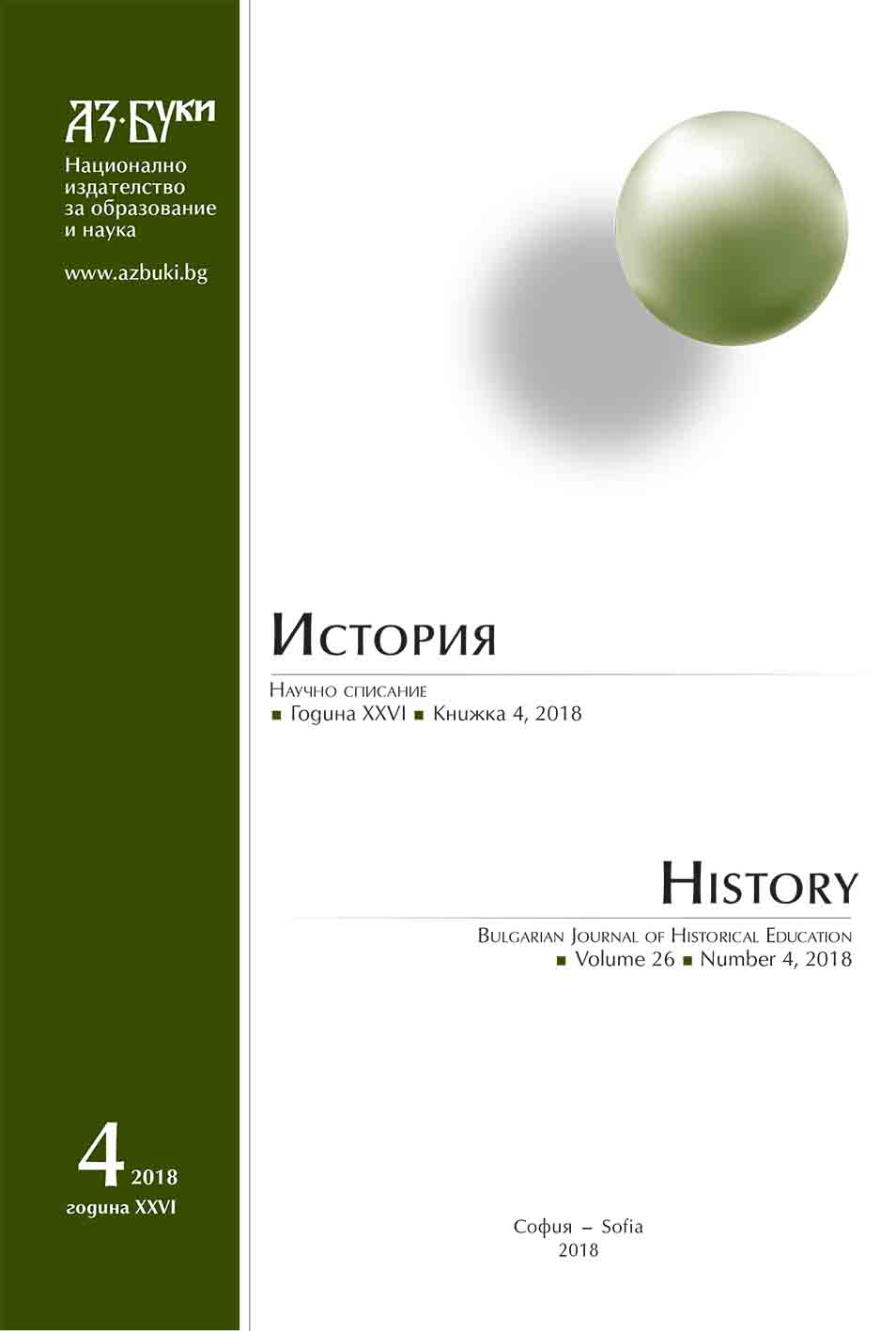
Social transformations, the rapid development of scientific and technological progress, the change of the ruling regimes pose many challenges to the modern citizen. An average person is often not ready to psychologically resist rapid changes, and tries to adapt to them in a different way. In terms of fleeting social changes, we can observe an increase of interest towards religion in certain categories of population, because in a faith in God, people are trying to find spiritual support, protection and answers to the challenges of the present time. In view of this, studies of the transformation of religious consciousness in the conditions of socio-political transformations acquire a special relevance.
More...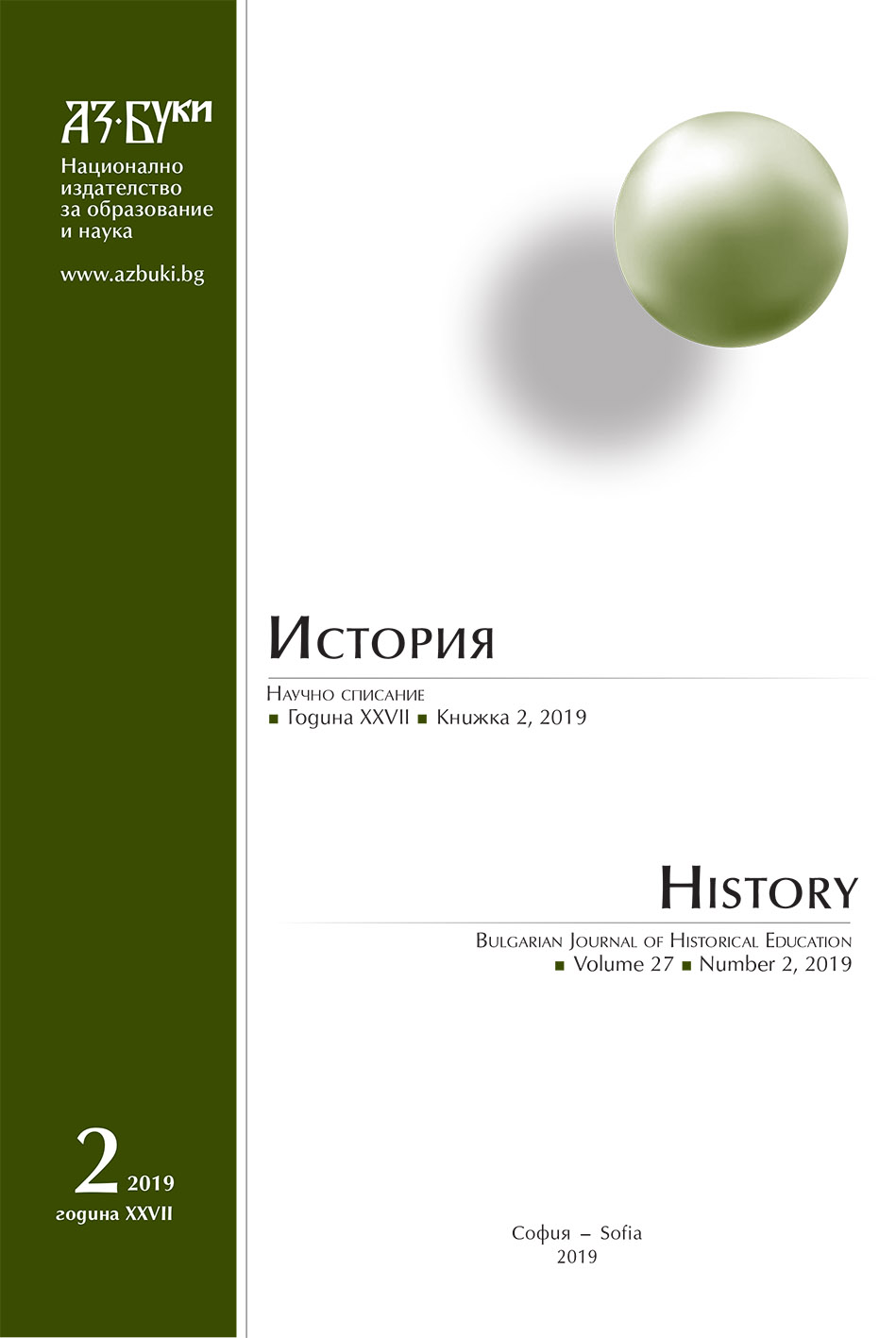
Russia has always been making efforts to define itself, since the rule of Peter I, and even earlier, by comparing itself to Kievan Rus and the Grand Duchy of Moscow. Russia has always managed to revive itself as a country, though always different, but the question remained – was Russia the East or the West, or was it something else, no matter how old it was? In all respects, Russia is Europe and its place is in Europe but the way it is governed always pushes the country toward the East.
More...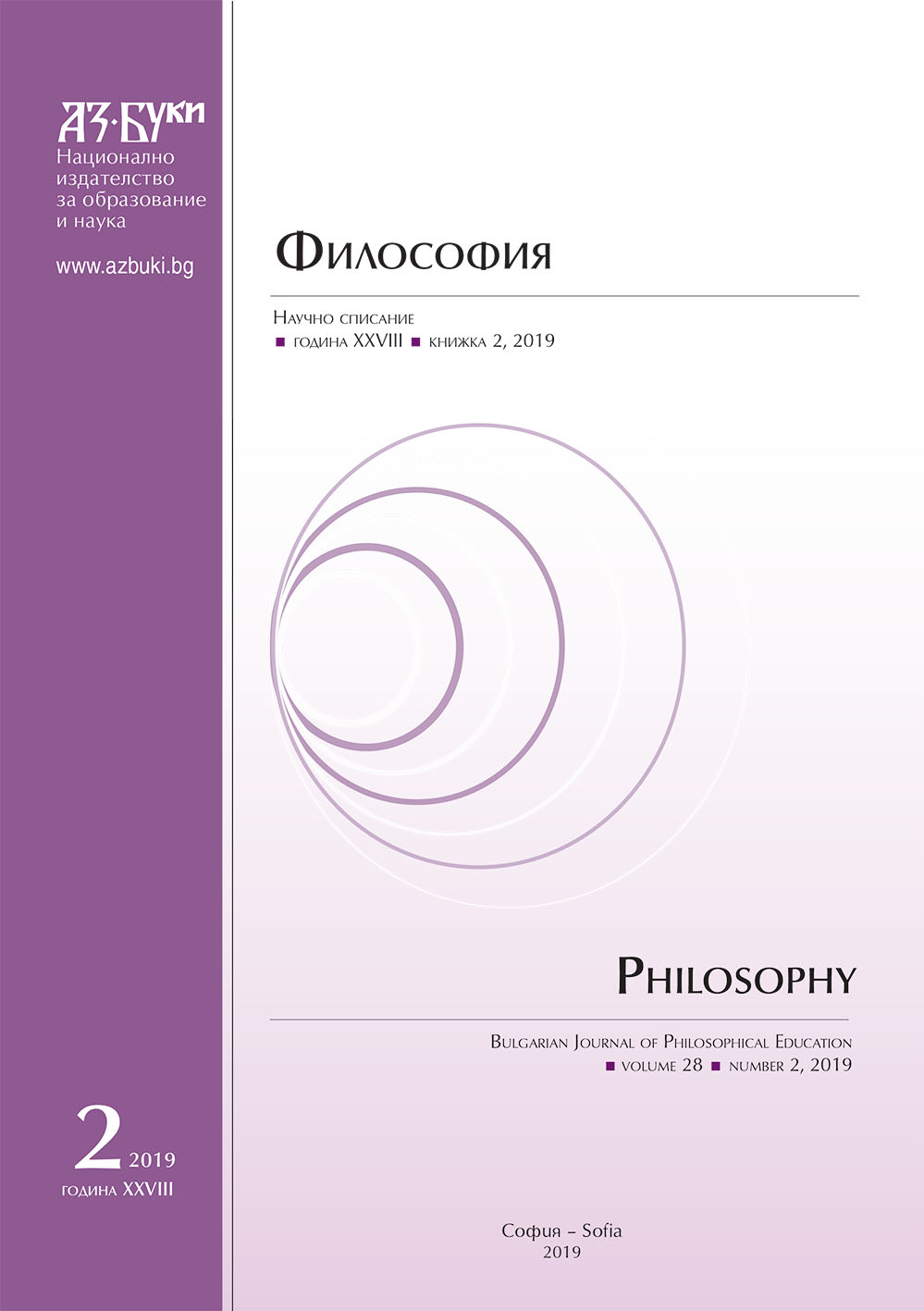
The debates about the relation between the national and European identity have recently gained a new impetus as a result of the growing national populism within the EU. In this regard, the article aims at elaborating the points of resemblance and dissonance between the identity-patterns of the two collective identities construction. In addition, it raises the question about the relation between national and European identity – do they compete with each other or they are parts of a bigger postmodern identity mosaic? In the first part of the research the main structural elements taking part in the National identity construction are discussed making a parallel with the European identity composition. In the second part of the text a more detailed analyses on the ethnic and civic model of identity construction is offered revealing two levels at which European identity is being created. Given that the majority of the academic work on the topic is more statistically or case orientated the article might be of interest due its fundamental approach.
More...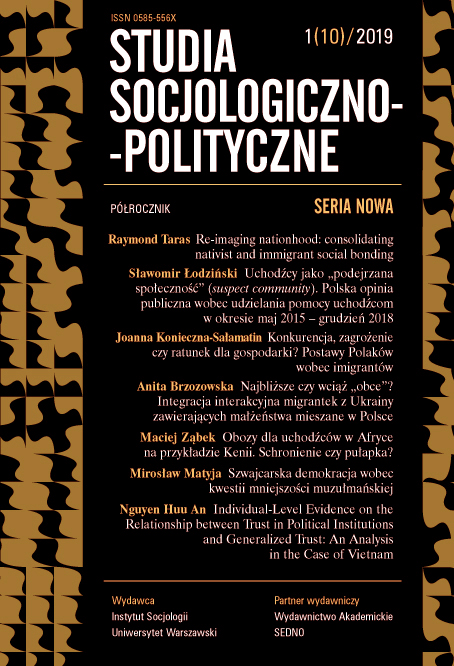
This article presents the situation that prevails in „temporary” sanctuaries known as humanitarian zones, or colloquially speaking – refugee camps managed by UNHCR in sub-Saharan Africa on the example of Kenya. The invention of refugee camps as a kind of modern refugia is increasingly being criticized in the world. „Protection” and „aid” provided there consist in controlling and keeping their residents alive without giving them the opportunity to live independently. This system is quite convenient for both host countries and the whole so-called humanitarian industry operating according to marketing logic. The system removes the burden of dealing directly with refugees from host countries and the humanitarian industry hasa kind of market of suffering and excluded refuges which legitimize its existence. It justifies the question whether the camps really provide security and help that they promise? Refugees get voluntarily to the refugee camps, but why in that case do they have a sense of imprisonment when they are there? Why the international refugee protection system that promised sustainable solutions can not solve their problems? Why do refugees in the camps often feel that they are in a trap, from which it is difficult to escape? In the text I refer critically to the existing ways of providing protection and assistance to refugees. I underline the significant discrepancies between the declarations on the part of humanitarian organizations and results of their actions. I suggest rethinking the humanitarian aid system called the „International Refugee Regime”, entangled in contradictions and helpless in the face of the suffering that he promised to remove.
More...
Muslims in Switzerland are the third largest religious group. However, they are not legally recognized as a religion. The Swiss state is confronted with the necessity of their integration and the problem is constantly present in politics. It is a fact, that the regional differences between Muslims and other religions in Switzerland are very large. The results of referendums regarding the acceptance of the Muslim religion have been in the past only negative. The best example is the initiative and referendum „stop of minarets” in 2009. From a legal point of view, the presence of Muslims in Switzerland provokes many challenges for the Swiss state, because the systems of these two „worlds” are fundamentally different: Muslim law is based on the Islamic religion, while the Swiss Confederation is a democratic state of law and as such is based on the will of society. Recognition of Muslims as a religious minority can take place within the framework of Swiss direct democracy only in the referendum, which is currently impossible.
More...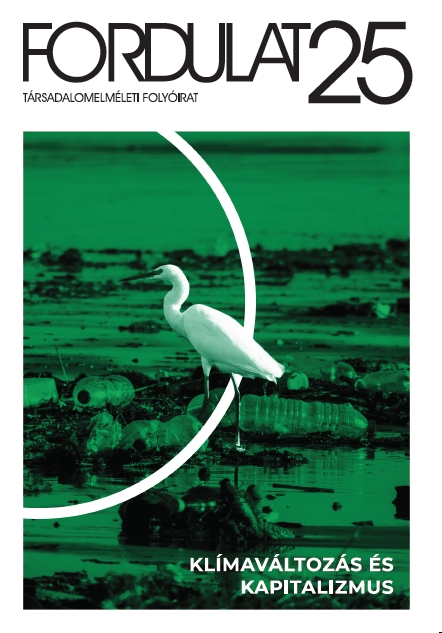
Rebecca Solnit has published her book "A Paradise Built in Hell" ten years ago. Its main idea was originally formulated in 2005 in an essay published on the day when Hurricane Katrina reached New Orleans. Rebecca Solnit is writer, historian and activist living in San Francisco; she has been working in various environmental, anti-war, human and women's rights movements since the 1980s. She has published 17 books so far and is a regular author of Guardian and Harpers' Magazine. In her works she continues the tradition of American progressive public intelligentsia: although she relies on historical facts and social science research, she primarily outlines perspectives to expand sociological imagination (Mills 1959) on challenges that cannot be solved by the social knowledge produced within the current social order.
More...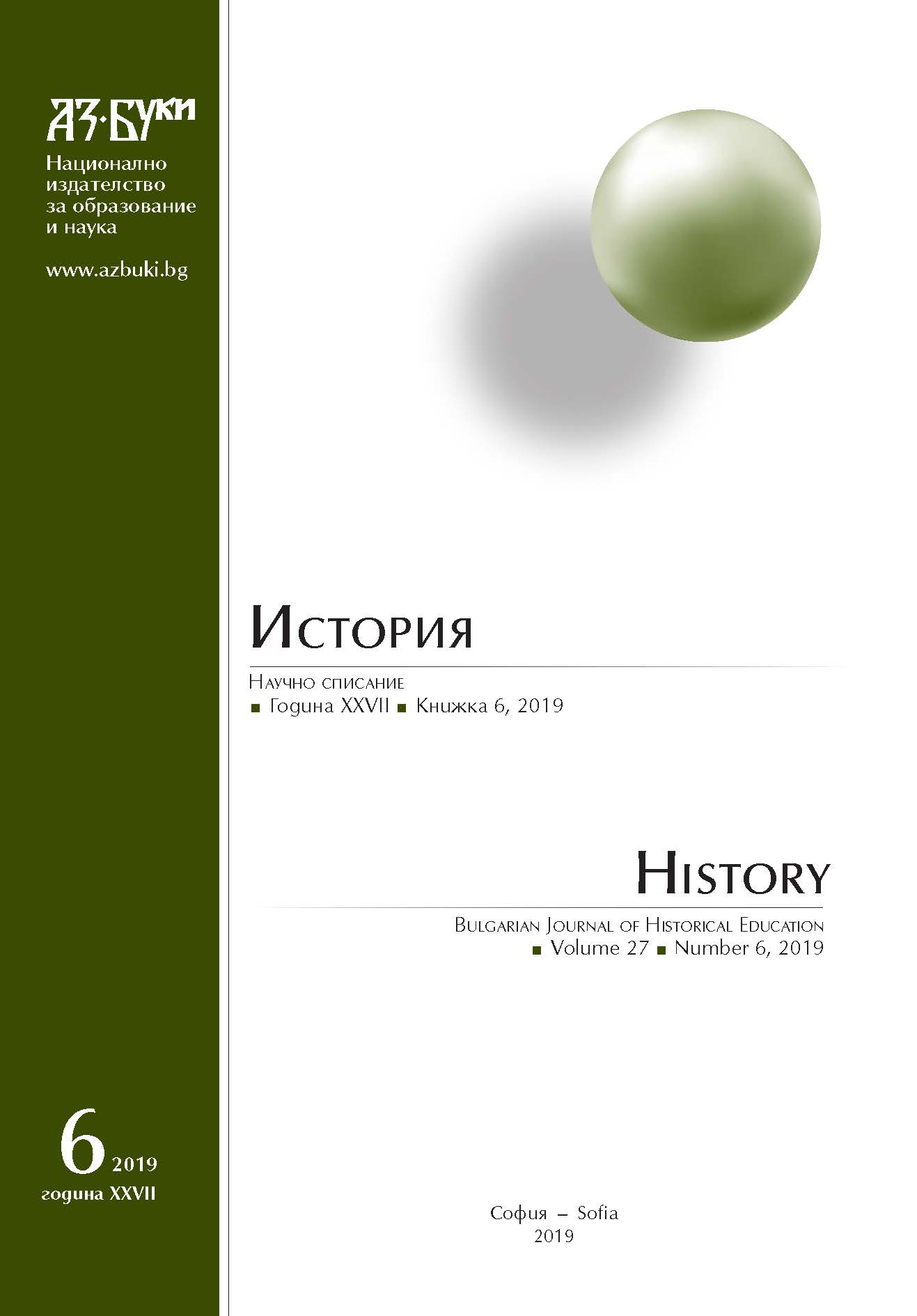
The post-war situation confronts the Turkish population in Bulgaria with the challenges of both the strained relations between Sofia and Ankara and the assimilation-led policies of the communist ideology against the minority. This publication examines the attempts of the Bulgarian Communist Party to build a new view of life among the Turkish women in Bulgaria through the mechanisms of education and culture. By pursuing its goal of depersonalizing the influence of religion at the expense of emancipatory perceptions of women’s active participation in social and political life the state harnesses totalitarian propaganda in order to change the value orientation of the Turkish women. The striving for modernization of the life of the Turkish women is also in compliance with the specific tasks and problems of the simultaneously pursued minority policy in the country.
More...
The proposed text does not attempt to present in detail the transformations pertaining to the Bulgarian Turks that have taken place in the state system and the society in Bulgaria since November 10, 1989. Rather, it attempts to explore a phenomenon which, at first glance, undoubtedly resembles nostalgia, but reveals, after a more thorough looking into it, the Bulgarian Turks‘ memory of the repressive party line of the totalitarian state and its culmination - the policy of forced assimilation, cynically called „revival process“. Also, the new reality of the Transition evokes a certain perception of the totalitarian regime, not in regards to its construction, normative or services, but in regards to its everyday life expressed through work realization, education, organization of public spaces, etc.
More...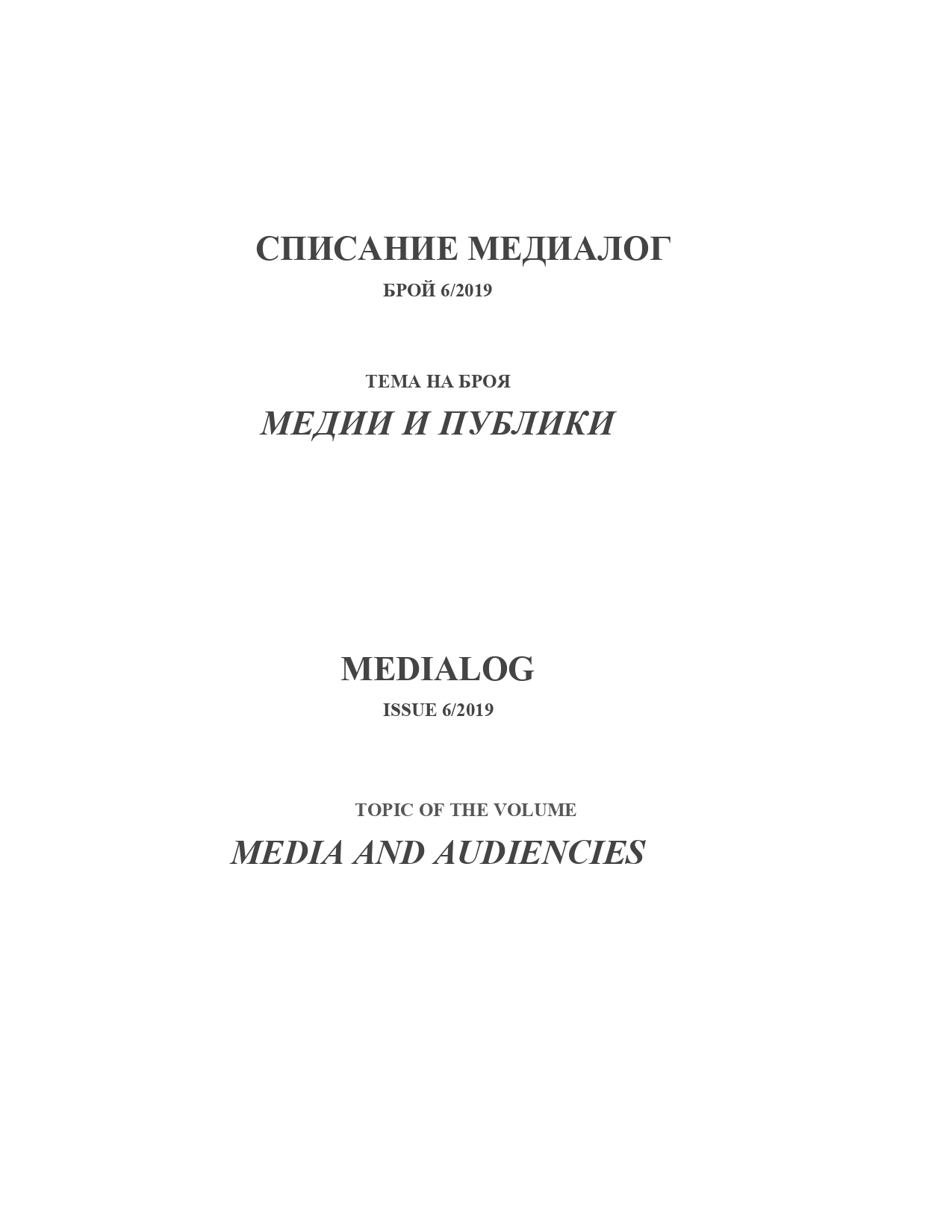
Conference report on the International Science Conference ‘Culture as Fieldwork: Authentic, Spectacular, (In)visible'
More...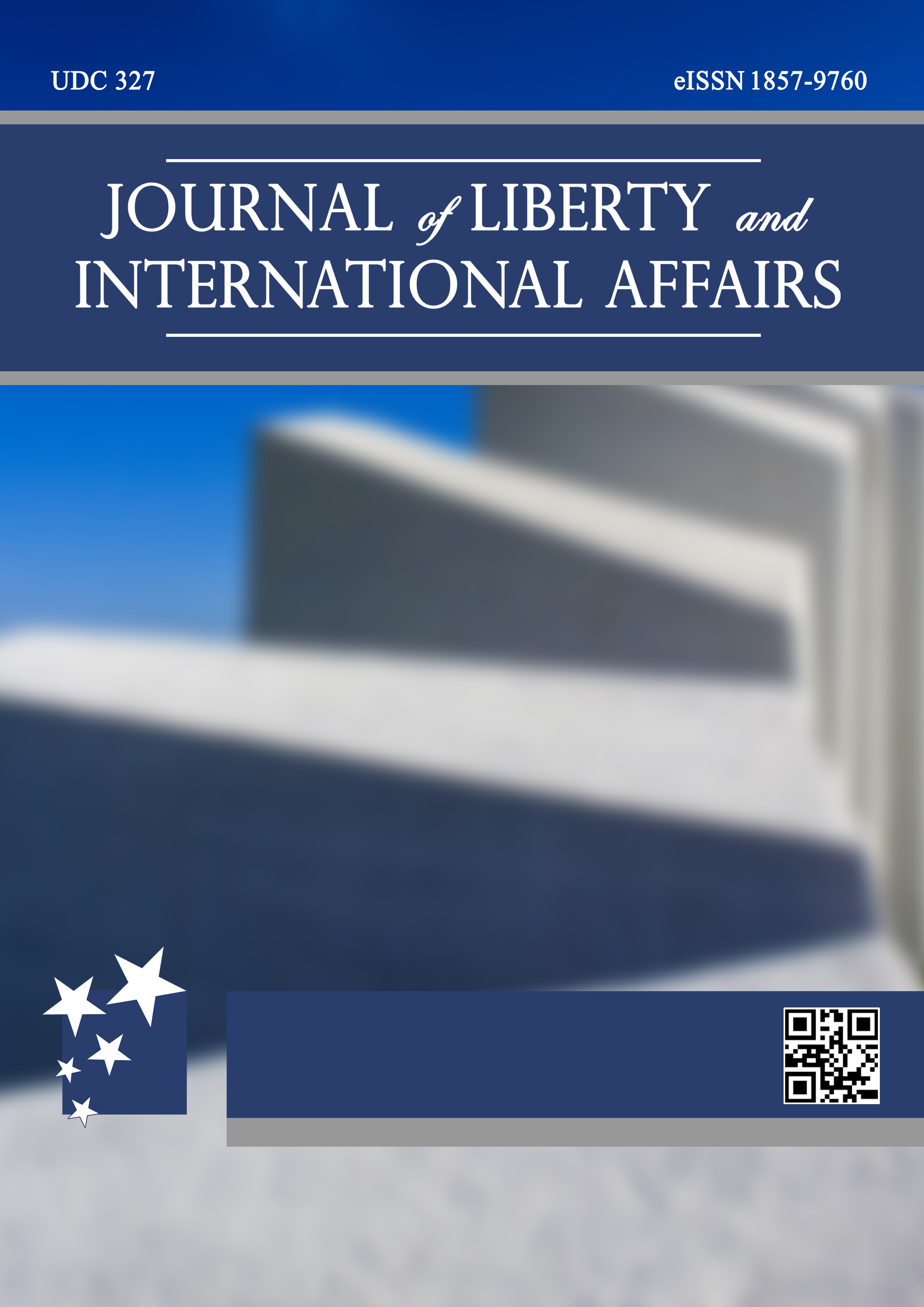
The issue of gender justice has drawn the attention of gender scholars as does gender equality a justice or civilization. Because of this, the paper examined women and gender equality justice or civilization. In discussing these gender issues, several documents, reports, newspapers, magazines, archives, articles, journals, among others, were systematically reviewed to support the argument. Two theories were used in supporting the argument. These are Islamic Feminist and Liberal Feminist theories. The assumptions of these theories centered on gender equality and gender justice in society. The study found that gender equality is not civilization but justice. This is of the fact that both men and women are born equal and need equal justice for the development of the nation. The paper recommended that men and women should be given equal opportunity in all aspects of life in order to ensure gender justice. Parents and religious leaders should adhere to the principles of gender equality for the betterment of society.
More...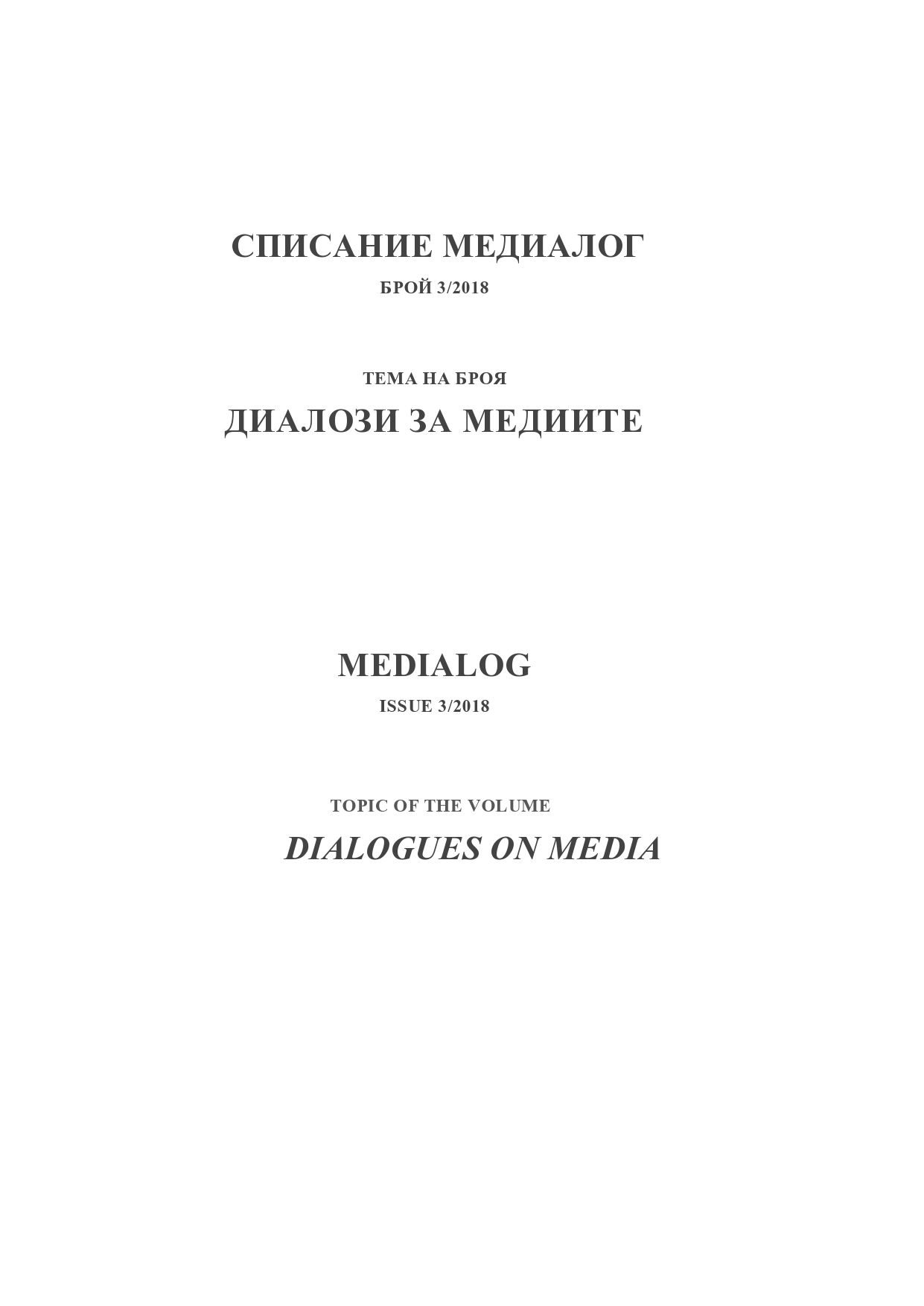
The text presents the state of the web TV in Bulgarian based on the results from the project ‘Web radio and TV in Bulgarian language’ funded by the Research fund of Sofia University with supervisor prof. DSc Snezhana Popova.It is hard to show precise data about the number of web TVs in Bulgarian or with Bulgarian addresses in 2017. The platforms do not use the term web TV, ‘online TV’. In 2017 three types of web TVs prove to be sustainable: regional, lifestyle and radio and TV. The announcement style TVs that present service information as well as the only regional station ‘Epohi’ TV have disappeared. The sports TV projects do not function (with the exception of the TV of FC ‘Levski 1914’). At least formally the ‘music online TVs’ are the largest number. However, the research showed that behind this title on some of the platforms exist websites with pornographic content. Most of them are announced as pop-folk music TVs. The main problem in making web TVs in Bulgarian is the ambiguity of who is expected to watch them. Apart from regional TVs everyone else say they a looking for their audience instead of building a message for a specific group.The text presents the state of the web TV in Bulgarian based on the results from the project ‘Web radio and TV in Bulgarian language’ funded by the Research fund of Sofia University with supervisor prof. DSc Snezhana Popova.It is hard to show precise data about the number of web TVs in Bulgarian or with Bulgarian addresses in 2017. The platforms do not use the term web TV, ‘online TV’. In 2017 three types of web TVs prove to be sustainable: regional, lifestyle and radio and TV. The announcement style TVs that present service information as well as the only regional station ‘Epohi’ TV have disappeared. The sports TV projects do not function (with the exception of the TV of FC ‘Levski 1914’). At least formally the ‘music online TVs’ are the largest number. However, the research showed that behind this title on some of the platforms exist websites with pornographic content. Most of them are announced as pop-folk music TVs. The main problem in making web TVs in Bulgarian is the ambiguity of who is expected to watch them. Apart from regional TVs everyone else say they a looking for their audience instead of building a message for a specific group.
More...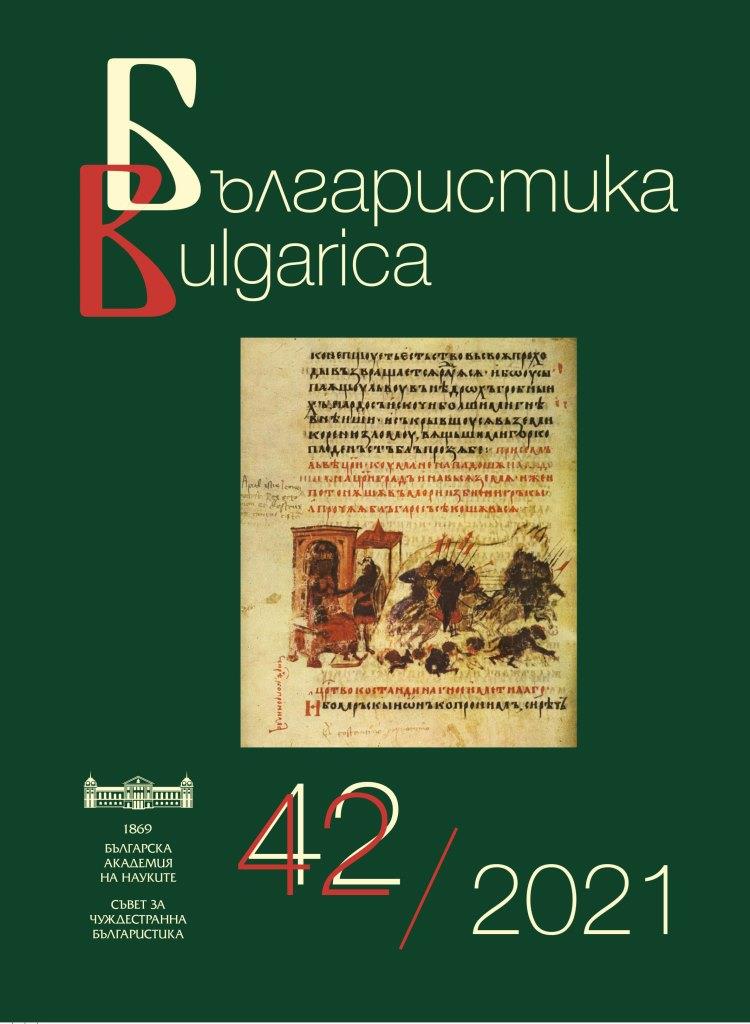
Selected bibliography in the field of Bulgarian Studies published in the current year.
More...
The issue of the sea between Albania and Greece has been and continues to be an object of study for various authors. Research shows so far that many studies have tried to go slightly from the descriptive to the explanatory and analytical framework and have generally fallen into the ‘trap’ of subjective approaches creating the phenomenon of nationalism. That appears in different forms, damaging the spirit of friendship and cooperation between both countries. This paper analyzes relations between Albania and Greece and their evolution based on international acts until the decision of the Albanian Constitutional Court annulling the agreement between them on the issue of the sea as incompatible with the constitution in terms of absolute objectivity. The demands of the Greek state for extension with 12 miles under the magnifying glass of the interpretation of the norms of the international law of the sea, the principle of equality and equity are part of the insistence on gaining superiority in the sea area vis-à-vis Albania. All this leading to the dialogue for another treaty cooperation and friendship occupy a vital part of the facts, which constitute an ongoing open discussion about the future of the sea issue on the Hague International Court.
More...